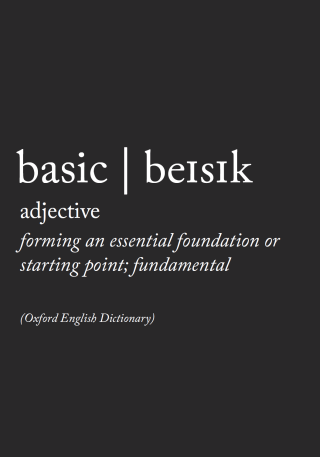Citizen scientist Victorine reflects on the inadequacy of the provision of basic services to people with special needs and disabilities.
According to the Oxford English Dictionary, the word ‘basic’ means ‘forming an essential foundation or starting point; fundamental’. What does basic mean to people with special needs and disabilities?
Basic shouldn’t mean average, basic means what is essential to each person’s diverse needs
Access to education, housing and healthcare are fundamental needs. Yet, they are often designed for the “average” person in mind. “Basic” services are therefore often inadequate and inappropriate for people with special needs and disabilities. Welfare and social support must be designed for the diverse needs of people for it to be truly basic.
Lily, a mother of a child with special needs, laments the lack of appropriate education for her child:
In the area, there is no support for kids with special educational needs (SENCO) in schools. Even if we live here in Heath, we moved the kids to a school out of the borough.”
Victorine, who suffers from a spinal condition and lives with her two teenagers who are her carers, also speaks about the lack of appropriate housing from the council:
My flat is on the first floor with 17 stairs and, since my health condition more than three years, I have only been allocated first floor temporary houses. In total, I have been waiting 15 years for a permanent house.”
Inadequate basic support forces people with special needs and disabilities to struggle alone
Amber’s life changed dramatically 3 months ago due to an accident. She lost her job and had to move to the ground floor of her home. She is in dire need of an adapted house, but the waiting list is very long. This means she must move out of the borough and out of London for an appropriate house, forcing her to leave her friends and her community. Amber, who lives alone and suffers from a spinal injury said:
I have no choice, I will be alone.”
Feeling alone takes a toll on your mental health
Mental healthcare must become a pillar of basic social support. People need mental health support not only to face life’s struggles but also to accept help when they need it.
At the same time, basic social services like housing, legal support, livelihood opportunities, security, and education, can enable mental health when designed with people’s diverse needs in mind. People with disabilities and special needs, and people from diverse ethnic backgrounds, must be included in the decision-making process. Daisy, a single mother of 2 children on the autism spectrum, recalls the effects of a lack of basic support on her mental health:
In the past I attempted to end my life but now I realise my kids need me and they are vulnerable.”
Rose, a mother of a child with cerebral palsy, also described her struggles:
I don’t have time to think about my wellbeing. I can’t get depressed; I don’t have a choice because my kids depend on me.”
Mental healthcare is welfare, and welfare leads to mental health
Mental healthcare should be a pillar of basic social support. People need mental health support not only to face the multiple barriers to prosperity in their lives but also to accept help when they need it.
At the same time, basic social services like secure livelihood opportunities, legal support, education, housing, communal spaces, and security, can enable mental health by alleviating barriers to prosperity. For these to truly help, they must be designed with people’s diverse needs in mind. Providing support for and including people with disabilities and special needs in the design of basic social support is therefore a critical part of prosperity.
If you could speak to a policymaker now, what would you say?
““I found Daisy’s interview very emotional because I went through the exact same thing. I also overcame multiple barriers in my life and divorced my husband after 17 years of abuse. I now look after my daughter who has a disability on my own and am an elected councillor, but these changes were only possible because of programmes and events in my life that helped me to recognise my strengths and the value of my voice. Policymakers need to enable this same change in communities - they need to create governance structures that empower people and centre their direct voice.”
Regina Khan
If MPs had listened to those parents who have children with learning disabilities, there would be more spaces for children with learning disabilities. When you are going to a school or park, you see a normal park designed for normal children, and you see that your child cannot do anything because it wasn’t developed for special needs. You won’t bring your child to the park! But this child deserves a park. This child deserves to have education for special needs.”
Victorine
 Close
Close


